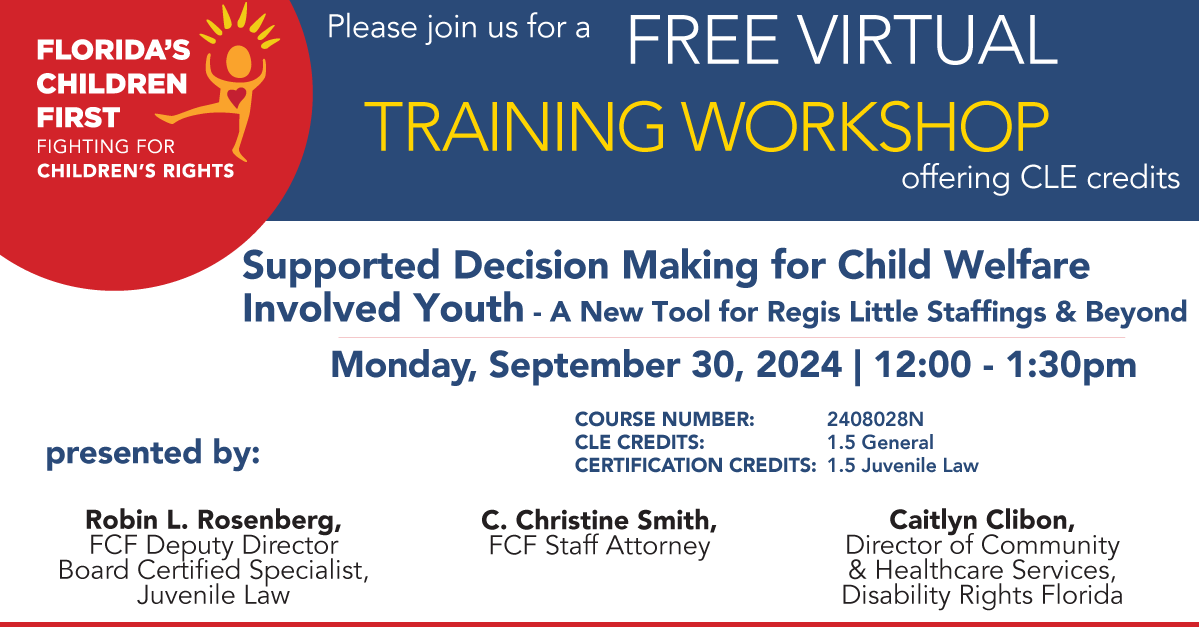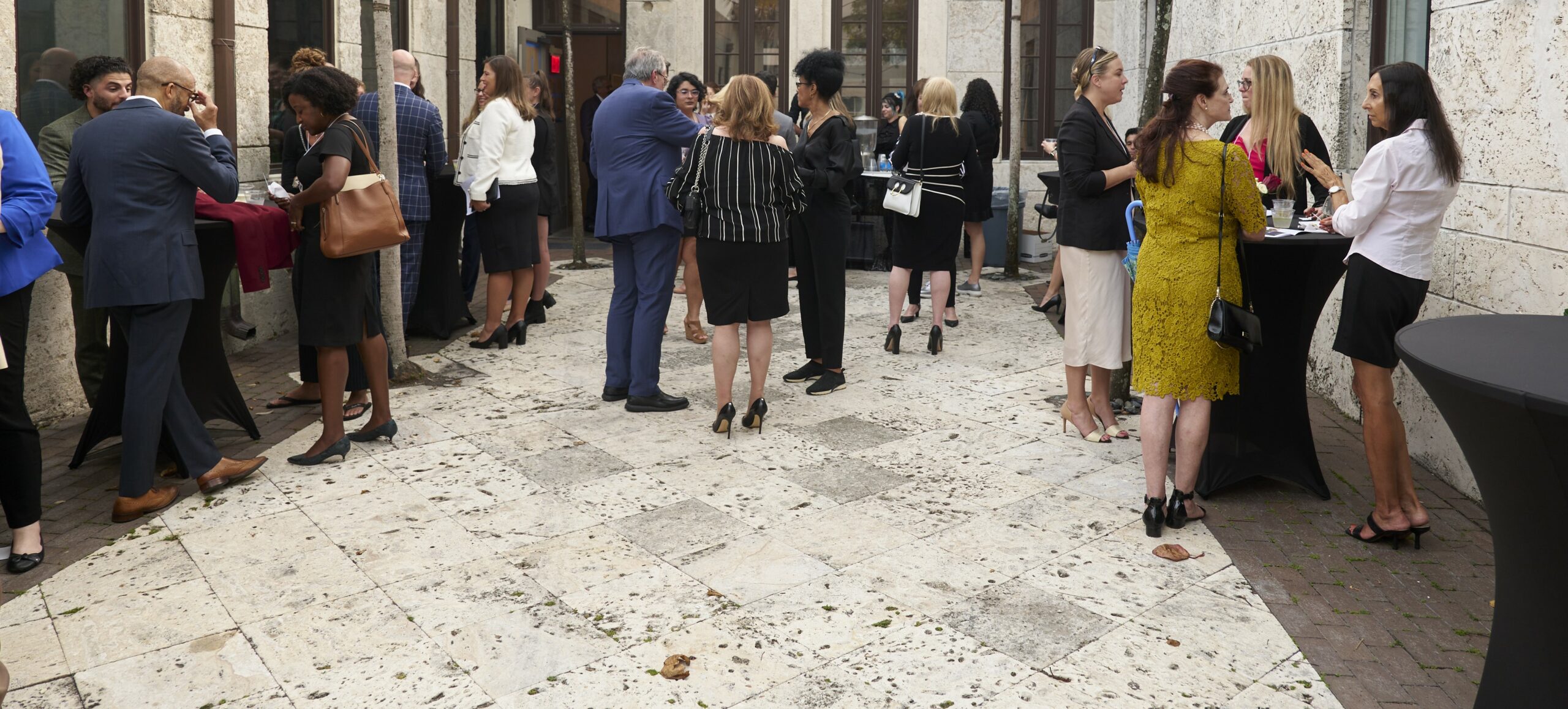Co-hosted by Florida’s Children First, FLS Statewide Training Initiative & Disability Rights Florida
Speakers:
Robin Rosenberg: Deputy Director, Florida’s Children First
C. Christine Smith: Staff Attorney, Florida’s Children First
Caitlyn Clibon: Director of Community & Healthcare Services, Disability Rights Florida
Many young people struggle with decision-making as they become adults. Youth in the child welfare system often lack the natural support of family and friends to help them navigate adulthood. They are further disadvantaged if they lived in placements that did not provide them with the opportunity to take on responsibilities and make decisions for themselves. When those young people have cognitive impairments, the child welfare system often looks to guardianship or guardian advocacy as a means to protect them in adulthood. The Regis Little Act requires the child welfare system to consider whether older youth with disabilities might need guardianship or guardian advocacy and permits initiation of those proceedings prior to age 18. Many young people, however, who need help with decision making do not need the loss of rights that come with guardianship or guardian advocacy. In 2024 the Legislature created a new tool that will help adults retain their rights and get help with decision-making. This training will examine the new law on Supported Decision Making and show it can be a useful tool to help young people with child welfare involvement.
CLE CREDITS
CLE #2408028N
1.5 General credits
CERTIFICATION CREDITS
1.5 Juvenile Lawi




